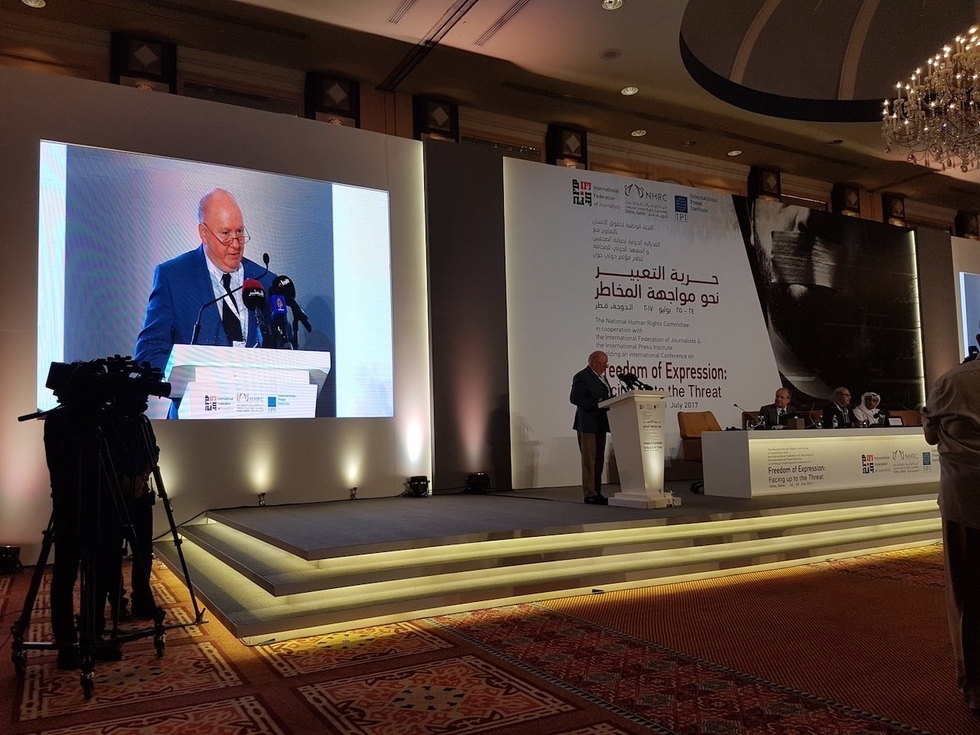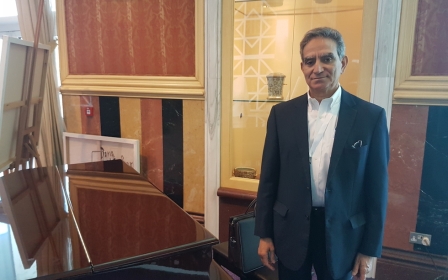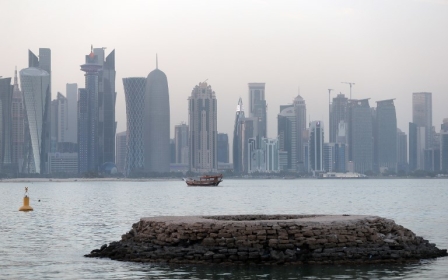Journalists, NGOs slam Saudi 'threats' to close Al Jazeera

Journalists and human rights activists on Tuesday denounced "threats" by Saudi Arabia and its allies against Qatari media organisations, including satellite news broadcaster Al Jazeera.
Regional kingpin Saudi Arabia, Bahrain, the United Arab Emirates and Egypt broke ties with Qatar on 5 June, accusing it of fostering extremism and later issuing 13 demands, including Al Jazeera's closure.
At the end of a two-day conference on "freedom of expression", organised by Qatar and attended by representatives of international organisations, rights groups and academics, a statement denounced "threats" by Saudi Arabia and its allies.
"The conference condemns unequivocally the threats by the governments of Saudi Arabia, the United Arab Emirates, the Arab Republic of Egypt and the kingdom of Bahrain demanding the closing down of Al-Jazeera and other media outlets," it said.
Human Rights Watch executive director Kenneth Roth had opened the conference Monday saying: "Political freedom and especially free expressions are very much at the heart of the crisis facing Qatar today."
He called the conference "an important sign of commitment on Qatar's part to engage in some of the reforms that will enable them to maintain their moral high ground."
"This country is no more a democracy than the other Gulf countries," Roth said, calling on Doha "to become a genuine regional leader in human rights".
Seamus Dooley, the acting secretary general of the National Union of Journalists for the UK and Ireland, said journalists "are not pawns in a political game".
He said he and others had to "think twice" before accepting Qatar's invitation to the conference over Doha's "fundamental issues" with the rights of women, minorities and freedom of expression.
The head of Qatar's National Human Rights Committee, Ali Bin Samikh al-Amarri, thanked delegates for "defending" Al Jazeera, saying it was tantamount to "defending freedom of expression and the right to information".
Closing Al Jazeera is one of 13 wide-ranging demands by Riyadh and its allies before a boycott of Doha and a "blockade" on the energy-rich Gulf emirate can end.
On Tuesday, they upped the pressure on Qatar, unveiling a "terrorist" blacklist of 18 organisations and individuals suspected of links with Islamists that they say had ties with Doha.
New MEE newsletter: Jerusalem Dispatch
Sign up to get the latest insights and analysis on Israel-Palestine, alongside Turkey Unpacked and other MEE newsletters
Middle East Eye delivers independent and unrivalled coverage and analysis of the Middle East, North Africa and beyond. To learn more about republishing this content and the associated fees, please fill out this form. More about MEE can be found here.



